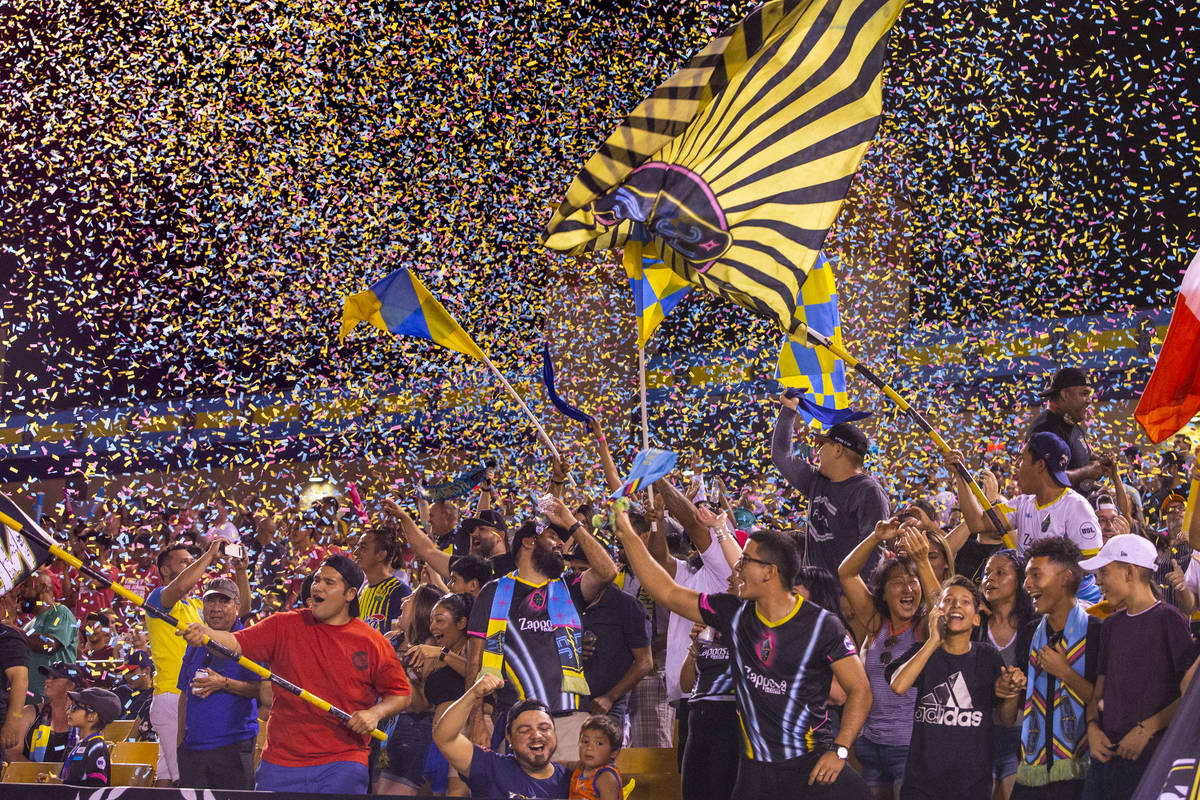COVID-19 hasn’t stopped Las Vegas push for MLS franchise
Seth Klarman didn’t become a prominent American investor and manager of a hedge fund called the Baupost Group by not squeezing every last dollar out of a deal.
When asked about Klarman’s attempt to acquire land from the city of Las Vegas on which a stadium would be built for a Major League Soccer expansion franchise, one person with ties to the Boston-based billionaire said: “I would think at this point he smells blood in the water.”
It’s an interesting way to describe any possible agreement with MLS, given all the money that sport is bleeding right now.
The world has paused under the dark cloud that is COVID-19. Already, a negotiating window between the Las Vegas City Council and an entity representing Klarman has been extended twice, a timeline now expected to be revisited in October.
The immediate assumption is that, in these struggling times, the Renaissance Companies — handling negotiations for Klarman — and city officials will ultimately part ways.
That the latest attempt by Mayor Carolyn Goodman to bring the MLS here by redeveloping a 62-acre Cashman Field property and building a 25,000-seat stadium will fall short.
That things are too financially unstable for the city to spend another second worrying about such a — pun intended — goal while budgets are slashed.
I’m just not so quick to believe the process is on life support.
Again with taxes?
I can’t see any way Goodman doesn’t continue pushing this forward like a skilled midfielder, no matter how cavernous the economic downturn proves locally.
Think about it. The proposal was actually put back on a future agenda in the middle of a global pandemic. Las Vegas doesn’t need MLS. Someone just wants it really, really badly.
But if all of this didn’t represent a robust land grab for Klarman before the coronavirus, forget about it now. This is where the blood in the water part comes in.
We are again debating the use of public money to help finance stadiums. This has always been about landing the MLS by essentially handing Klarman the acreage to develop, mostly via tourist or property or other forms of taxation.
That’s never a good thing, but especially now.
Don’t misunderstand. Cashman Field and the surrounding area need a facelift the size of Monaco. But it was also financially imprudent to help raise Allegiant Stadium via a similar formula, even though the potential rate of return on an NFL team to one in the MLS doesn’t exist in the same stratosphere.
But in today’s world, it’s just reality. A specific group wants to land a sports team and will support most any level of subsidy to make it happen.
More and more, though, if you (begrudgingly) accept the method for how such a stadium might exist, it’s possible the soccer part of things could work. I wasn’t sure about that a year ago. I’ve come around.
Why so: Las Vegas Lights FC have done a better-than-admirable job under owner Brett Lashbrook of growing an enthusiastic fan base for a second division club. It’s believable, then, that a team playing in the country’s most prestigious league with much better players and in a new facility would only increase such interest.
You wouldn’t even need llamas to get fans fired up.
A leverage play
This isn’t debatable: The MLS has never been more popular. More tickets sold, more people watching from home, a higher influx of better players.
Still, most teams are losing money. Millions.
If the league can’t negotiate a (much) better and consolidated television rights contract, the margin between solvent and stoppage becomes much closer. It needs far more profitable media deals.
And yet, the MLS continues to add franchises as a way to pocket hundreds of millions of dollars in expansion fees, always its main source of revenue.
The league will be at 30 teams by 2022 and most predict an eventual number of 32. Las Vegas — should the deal with Klarman go through and a stadium be built— would be as attractive as any future option.
Which means the initial viewpoint of how such a process would work hasn’t changed over 13 months: Klarman gets his land aided substantially by public money, purchases the Lights, finds investors to help support the MLS side of things and builds a stadium if a team is granted.
Which, as soon as an expansion check is floated, has every chance of occurring.
Meaning, it’s the same ’ol story, even in the middle of a pandemic: The one who can smell blood in the water always holds the most leverage.
Ed Graney is a Sigma Delta Chi Award winner for sports column writing and can be reached at egraney@reviewjournal.com or 702-383-4618. He can be heard on “The Press Box,” ESPN Radio 100.9 FM and 1100 AM, from 7 a.m. to 10 a.m. Monday through Friday. Follow @edgraney on Twitter.























